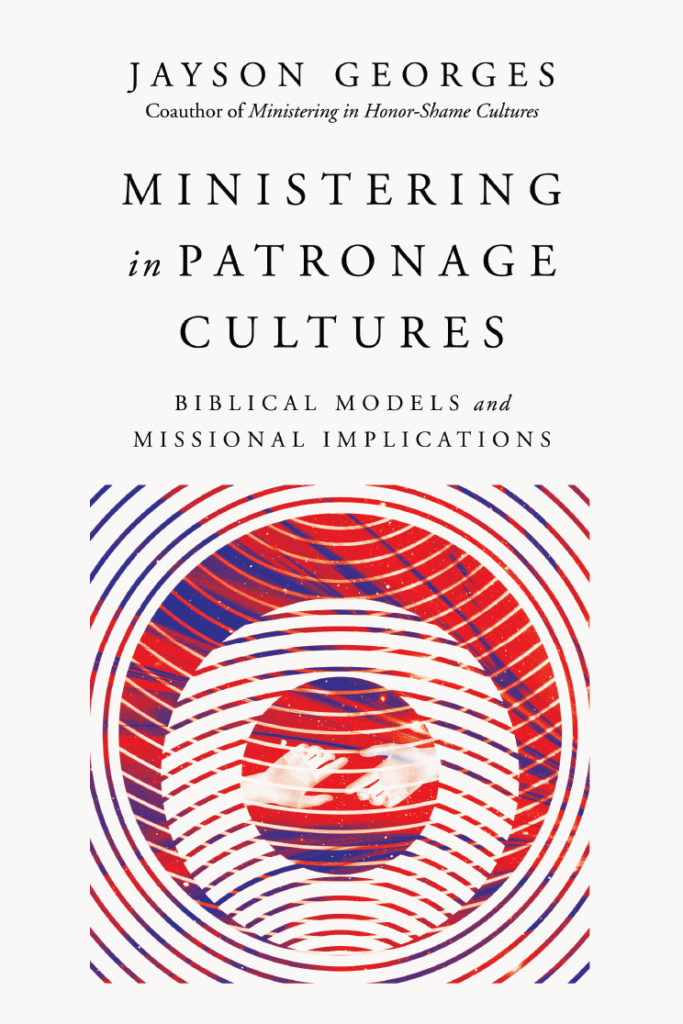Patronage
Patronage governs many relationships in Majority World cultures, especially those influenced by honor and shame. But regrettably, Western theologians and missionaries rarely notice this prominent cultural reality. Patronage—a reciprocal relationship between social unequals—is a central part of global cultures and the biblical story of God’s mission. This webpage features resources for Christians to better understanding the nature and importance of patronage.
Training Video
Patronage 101: How Relationships Work is a 5-minute ministry explainer video in patronage in biblical theology and relationships.
Book
This book Ministering in Patronage Cultures: Biblical Models and Missional Implications (IVP Academic, 2019) presents a biblical, practical paradigm for Christian ministry in patronage cultures.
Misunderstanding patronage creates problems not only for Westerners ministering in other cultures, but also for contemporary people reading the Bible. If we ignore the concepts of patronage in biblical cultures, we will misinterpret Yahweh’s relationship with Israel and miss some of the meaning in Jesus’ parables and Paul’s letters. Understanding patronage even illuminates theological concepts such as faith, grace, and salvation.
Jayson Georges brings his ministry experience and biblical insights to bear on the topic of patronage. With sections on cultural issues, biblical models, theological concepts, and missional implications, this resource will not only serve ministry practitioners but anyone who studies Scripture and worships God. Click here to learn more.
Articles & Blogposts
HonorShame.com has published these articles and resources on the topic of patronage.
- Patronage: A Quick Definition (2 page document)
- Patronage: A Visual Definition (a word-cloud)
- What is “Patronage”? (blogpost)
- Patronage in Latin Church Leadership (blogpost)
- How to Make Patronage More “Biblical” (blogpost)
- The Patronage Survey (summarized results from 380 people)
- To Be, or Not To Be…A Patronage? (practical blogpost and chat)
- 7 Differences about Money and Relationships (infographic)
- Patronage in Psalms (blogpost about Yahweh & Israel’s covenant)
- The Meaning of “Grace” (blogpost about the patronage context of charis)
- Sin in Patronage Relationships (blogpost on the nature of ingratitude)
- The Gospel according to Patronage (short summary)
The Patronage Symposium

The Patronage Symposium gathered over 50 biblical scholars and mission practitioners in Beirut, Lebanon (ABTS) to discuss a biblical and relevant missiology regarding patronage. Our three days together featured 20 presentations, panel discussions, and collaborative conversations. The most fruitful outcomes were multidisciplinary insights and relational connections, as recapped here. Recordings of the sessions are available here.

